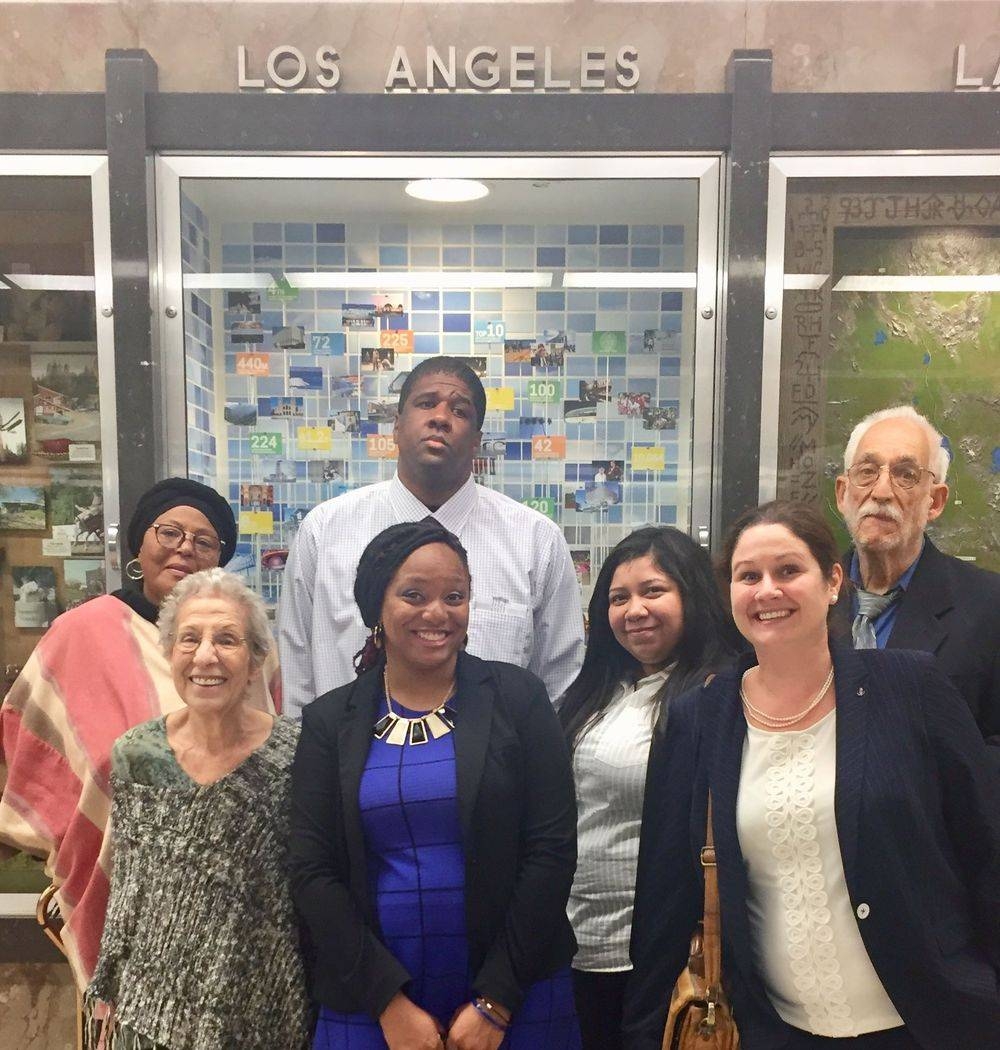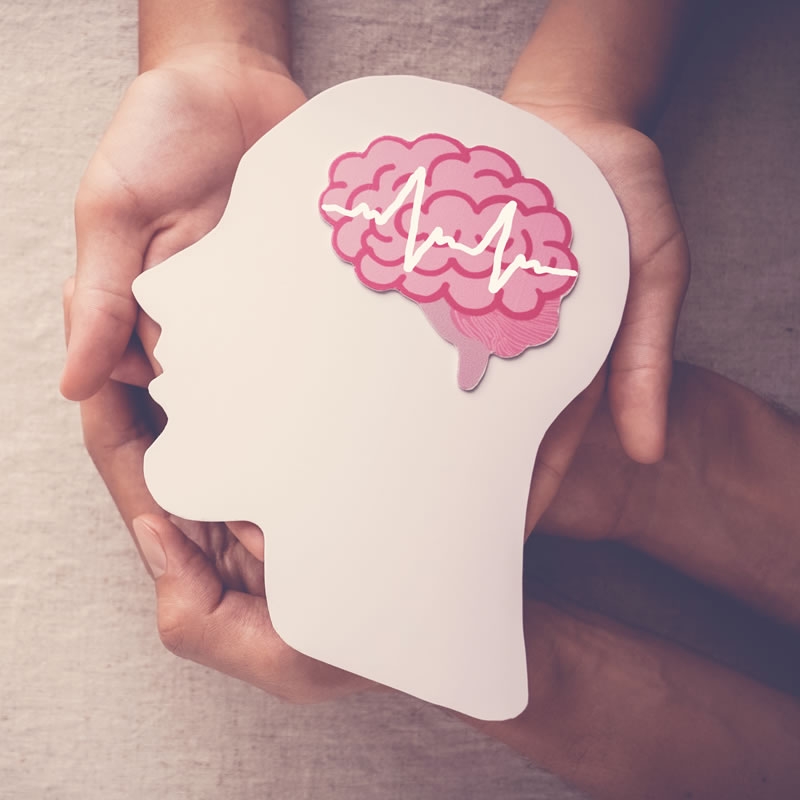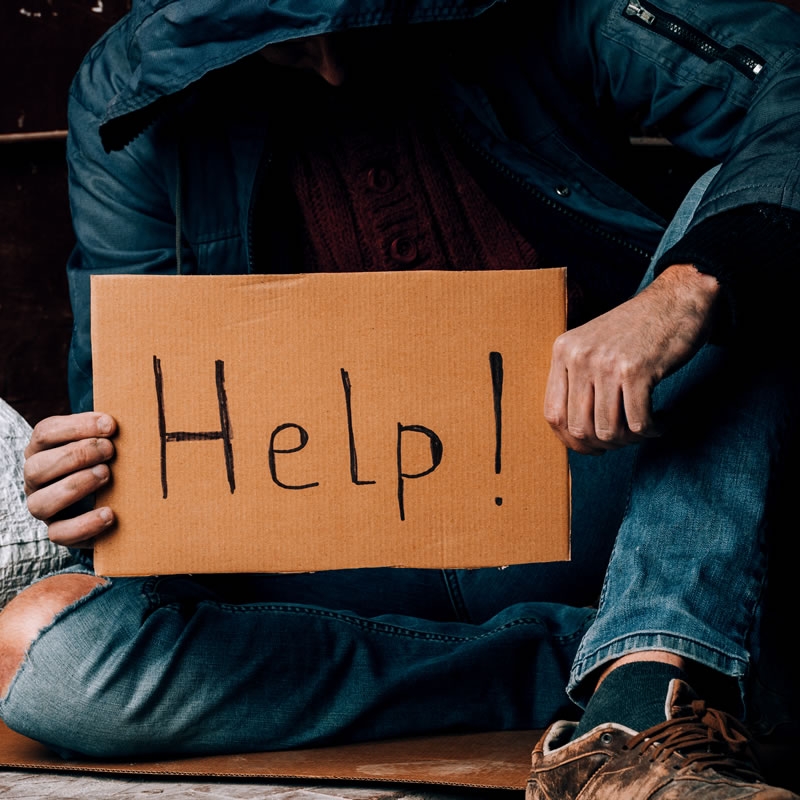Leer en Español
Training & Consultation
We are a nationally recognized training program with a menu of options that can be tailored to meet a variety of needs and delivered in a variety of settings. Trainings can be bundled together, delivered individually and delivered as a train the trainer program. In addition to our training options we offer speaker panels for agencies, colleges and conferences. Scroll down for a detailed list of trainings and descriptions.
PRPSN Training Institute
Please feel free to contact our Training Institute team:
Georgie Sullivan
Training Assistant
Cell: (323)772-9732
E-mail: gsullivan@prpsn.org
Our Menu of Training Topics

Peer Professional Training and Placement
The program prepares people who are, or who have been, consumers of mental health services for roles in the public mental health system as employees or volunteers. Individuals who complete the program are able to support the recovery of others and transform our mental health systems through the skillful use of lived experience. This training includes classroom instruction and an internship. We offer two versions of this training: One is our Los Angeles based in person series and the other is provided throughout California in local communities.

Harm Reduction
Harm reduction is a public health strategy that was developed initially for adults with substance abuse problems for whom abstinence was not feasible. Harm reduction approaches have been effective in reducing morbidity and mortality in these adult populations. In recent years, harm reduction has been successfully applied to sexual health education in an attempt to reduce both teen pregnancies and sexually transmitted diseases, including HIV. Programs using a harm reduction philosophy have also successfully lowered risky alcohol use. The target population and the context in which harm reduction strategies are delivered influence the specific interventions used.

Creating a Welcoming Environment
While working alongside and on behalf of citizens who have traditionally not had as much access to places and activities as most other citizens, we have come up against the reality that many times, frankly, it’s not the person who is the genuine “issue.” Many of our community places including schools, workplaces, associations, stores, and neighborhoods can be unwelcoming, even to the citizens who are already part of the group. Because of this, we recognize that we often have to work with a group to create a hospitable and welcoming environment for all current group members before we can focus on bringing in new citizens. We have repeatedly seen that members of a group who do not feel welcome or valued will not reach out and welcome any new person, disenfranchised or not.

Introduction to Recovery Model
Psychosocial Rehabilitation (also termed Psychiatric Rehabilitation or PSR or Recovery Model in California) promotes personal recovery, successful community integration and satisfactory quality of life for persons who have a mental illness or mental health concern. Psychosocial rehabilitation services and supports are collaborative, person directed, and individualized, and an essential element of the human services spectrum. They focus on helping individuals develop skills and access resources needed to increase their capacity to be successful and satisfied in the living, working, learning and social environments of their choice and include a wide continuum of services and supports. (PSR/RPS Canada, 2013)

Speakers Bureau (Panel Presentations)
Our speakers bureau is comprised of staff and volunteers trained in sharing their story of their recovery journey. Our peers deliver these on panels and individually in a variety of settings (conferences, schools, colleges, and agencies). The presentations are tailored to the meet the needs of the setting.

Peer Specialist Values and Ethics
The term peer supporter is an umbrella for many different peer support titles and roles, such as peer advocate, peer counselor, peer coach, peer mentor, peer educator, peer support group leader, peer wellness coach, recovery coach, recovery support specialist, and many more….
In general, a peer supporter is an individual who has made a personal commitment to his or her own recovery, has maintained that recovery over a period of time, has taken special training to work with others, and is willing to share what he or she has learned about recovery in an inspirational way.
In many states, there is an official certification process (training and test) to become a qualified “peer specialist.” This training explores the 12 core principles of peer supporters developed by INAPS.

Core Gift
Created by Bruce Anderson at Community Activators, Core Gift training is designed to guide trainees in the discovery, understanding and use of their Core Gift. The trainee’s Gift discovery provides them with a clear sense of purpose and knowledge that they have something valuable to give. Cultures and faith traditions, many centuries old, used specific methods to identify and use gifts in their members. Now, modern neuroscience and positive psychology have backed up older wisdom traditions by proving that individuals thrive when they are able to find meaning in their lives by knowing and giving their gifts.

Mental Health First Aid
This eight-hour training, provided by four Master Trainers, is an international training program proven to be effective. Peer-reviewed studies show that individuals trained in the program: Grow their knowledge of signs, symptoms and risk factors of mental illnesses and addictions. Can identify multiple types of professional and self-help resources for individuals with a mental illness or addiction. Increase their confidence in and likelihood to help an individual in distress. Show increased mental wellness themselves. Studies also show that the program reduces the social distance created by negative attitudes and perceptions of individuals with mental illnesses. Mental Health First Aid USA is listed in the Substance Abuse and Mental Health Services Administration’s National Registry of Evidence-based Programs and Practices.

Wellness Recovery Action Plan
We provide a three-hour training with homework and an hour follow-up session. The Wellness Recovery Action Plan or WRAP, training is a self-designed prevention and wellness process that anyone can use to get well, stay well and make their life the way they want it to be. It was developed in 1997 by a group of people who were searching for ways to overcome their own mental health issues and move on to fulfilling their life dreams and goals. It is now used extensively by people in all kinds of circumstances, and by health care and mental health systems all over the world to address all kinds of physical, mental health and life issues. WRAP has been studied extensively in rigorous research projects and is listed in the National Registry of Evidence-based Programs and Practices.

QPR - Suicide Prevention
Question Persuade, Refer (QPR) training is designed to enable trainees to perform three simple steps to reduce suicidal behaviors and save lives by providing innovative, practical and proven suicide prevention techniques. The signs of crisis are all around us. We believe that quality education empowers all people, regardless of their background, to make a positive difference in the life of someone they know.

Honest Open and Proud (HOP)
Why Honest, Open, Proud?
Research shows those who have disclosed aspects of their mental illness report a sense of personal empowerment and an increase in confidence to seek and achieve individual goals. HOPp is a three-session group program run usually by pairs of trained leaders with lived experiences with the objective of reducing the self-stigma associated with mental illness. The three lessons include:
- Considering the Pros and Cons of Disclosing: My identity and mental illness. Secrets are part of life. Weighing the costs and benefits of disclosing.
- Different ways to Disclose: Five ways to come out. Testing a person for disclosure. How might others respond to my disclosure?
- Telling your Story: How to tell a personally meaningful story. Who are peers that might help me with coming out? Review how telling my story felt. Putting it all together to move forward.

Motivational Interviewing
Motivational Interviewing (MI) offers a new perspective on what our role is, as practitioners, in the mysterious, perplexing, and often frustrating process of instilling motivation in our clients. Clients especially often feel discouraged as they rewrite (with different words) the same service goals every six months. Psychologists William Miller and Stephen Rollnick (1991) have conceptualized lack of motivation as the experience of being “stuck” in ambivalence. They developed a counseling style that elicits behavior change by helping clients to explore and resolve this ambivalence. This style is similar to the client centered, humanistic approach developed by Carl Rogers and others; however, it is notably more directive, and can demonstrate results in a relatively short period of time.

Effective Peer Support
This training is provided by experienced Peer Support Specialists who have been working in the field for numerous years providing peer support. They train on the tools and practices that have been learned by PRPSN peer supporters and shown to be effective. Included is an emphasis on tools and practice in the facilitation of groups: Giving instructions, deciding how to implement the activity, keeping the focus & managing challenges. Identify: Group roles & signs of an effective group. Learn: Various group activities and their intentions. Trainees leave with the knowledge and tools to facilitate varied group types.

Homeless Outreach and Engagement
Homeless Outreach and Engagement is critical to meeting the needs of individuals living on the street. This training provides a definition for engagement work that sets the stage for an understanding of the links between engagement, community development, and each participants style of engaging in the work. We will widen the definition of engagement beyond a specific expertise model to include principles of community development. By widening the definition, participants will be able to further clarity the foundational principles of engagement work, establish a vision for the work which is wider that each participants professional expertise area (mental health, law enforcement, etc.), and further clarify his/her values.

Peer Respite Services
A peer respite is a voluntary, short-term, overnight or multi-day program that provides community-based, non-clinical crisis support to help people find new understanding and ways to move forward. It operates 24 hours per day in a homelike environment. Peer respites are staffed and operated by people with psychiatric histories or who have experienced trauma and/or extreme states. Peer Respites help reduce hospitalizations, incarceration, homelessness and many other more emergent type of services.

Ethics and Boundaries - Utilizing the Five Factors
This training is delivered in 3 hours. Boundaries and Ethics are often presented as black and white or static in nature. Principle guided decision making teaches participants a framework to guide their decision-making process when presented with what we typically call boundaries and ethical situations. Participants will learn the definition and application of the following 5 factors: Ethics; Job Role/Responsibilities; Personal Boundaries; Client Preference; Treatment Preferences. Utilizing the 5 factors teaches each participant the tools to walk through a decision-making continuum and hierarchy and hence each participant can successfully articulate their basis for interventions.

From 911 to 411 - Unraveling the Conspiracy of Crisis
On any given day staff are forced to act with a false dichotomy. To step in and save a client from real or perceived consequences or to neglect them and allow them to suffer the consequences. This over-simplistic approach fails to acknowledge the real opportunities to act in ways that help the client in a more supportive, side by side approach that honors their skills, abilities, strengths and talents.

Trauma Informed Care
This four hour training is designed to provide trainees with the tools/knowledge necessary to provide Trauma Informed Care, “Trauma Informed Care is a strengths-based service delivery approach that is grounded in an understanding of and responsiveness to the impact of trauma, that emphasizes physical, psychological, and emotional safety for both providers and survivors, and that creates opportunities for survivors to rebuild a sense of control and empowerment” (Hopper, Bassuk, & Olivet, 2010, p. 82).”

